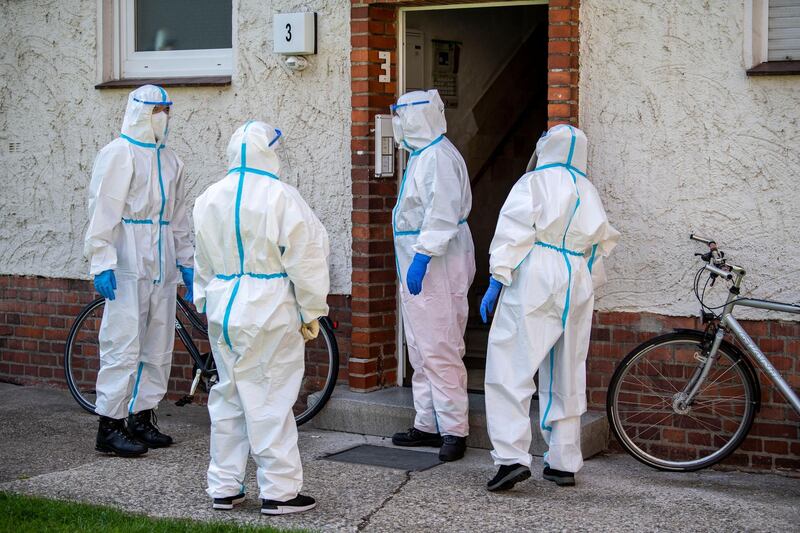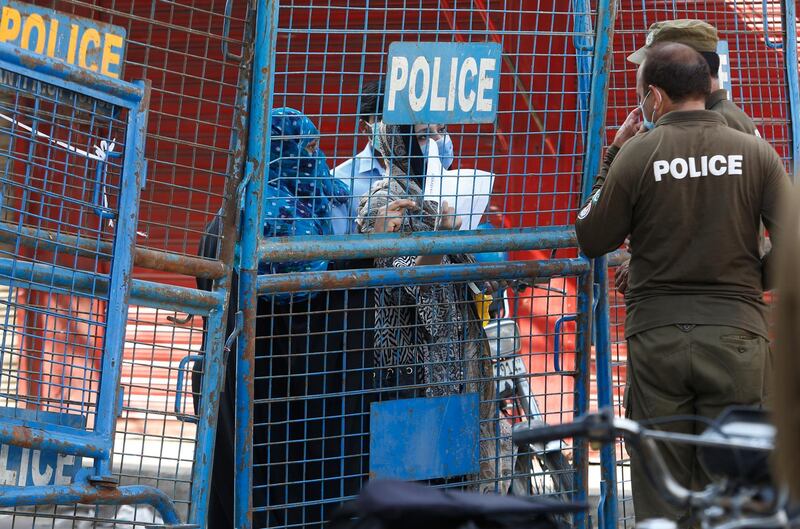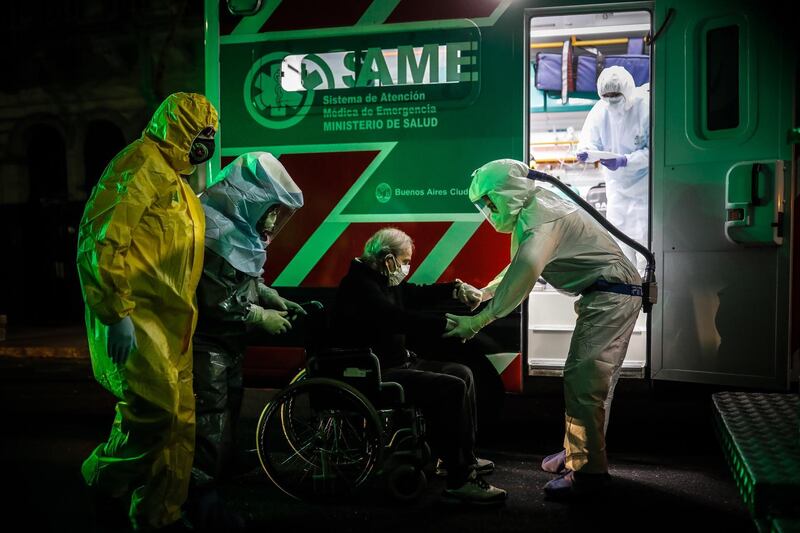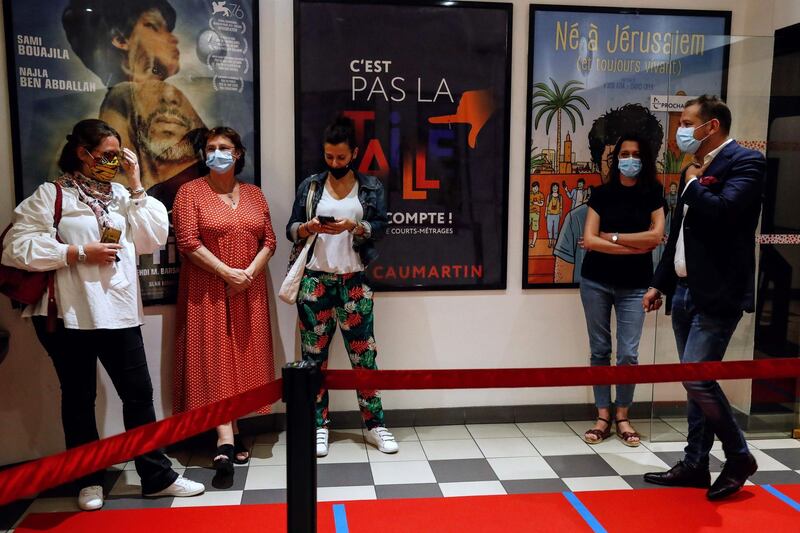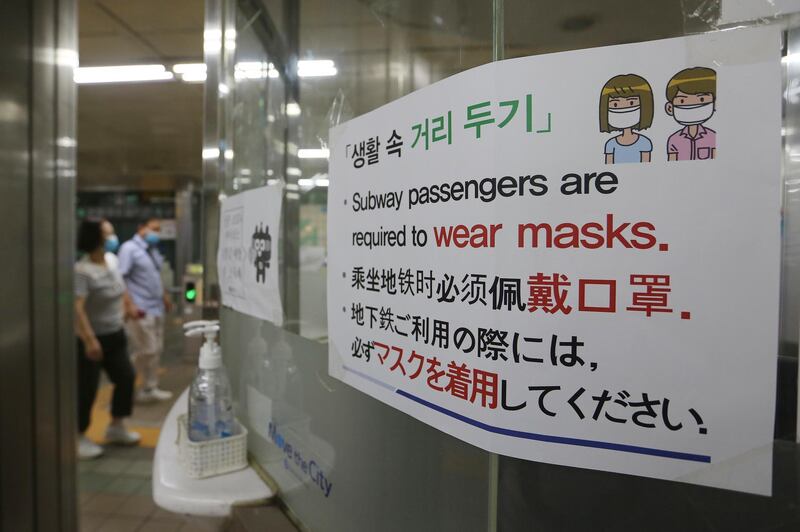A German region is returning to lockdown for after reporting a sharp rise in coronavirus cases linked to an outbreak at a slaughterhouse.
Residents of Guetersloh county, in Germany’s most populous state of North Rhine-Westphalia, should have contact only with people from their own household or one person from outside, Governor Armin Laschet said on Tuesday.
Cinemas, gyms and bars will be closed but restaurants will be allowed to continue to serve people from the same household, he added.
"For the first time in Germany, we will return an entire district to the measures that applied several weeks ago," Mr Laschet said.
The measures will be lifted on June 30 if the situation has improved, he said.
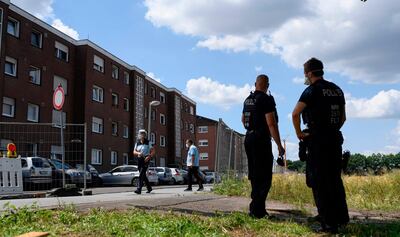
More than 1,500 workers at the Toennies slaughterhouse in Rheda-Wiedenbrueck have now tested positive for the virus.
Thousands more have been placed under strict quarantine rules in an effort to halt the outbreak.
Tuesday’s limited lockdown came as one of Germany’s top health officials said the country was at risk of suffering a second wave of Covid-19.
The head of the Robert Koch Institute for public health, Lothar Wieler, said however that he was optimistic it could be prevented.
Mr Wieler added that there was no scientific evidence that suggests social distancing rules imposed to help slow the spread of the coronavirus should be lifted.
Before this latest outbreak, Germany had been widely praised for its handling of the pandemic.
Widespread testing, tracing and hospital preparation measures were credited with keeping Germany’s death toll well below those of other large European states such as France and the United Kingdom.
Germany has so far confirmed more than 192,000 cases of the virus and reported nearly 9,000 deaths.
_______________
